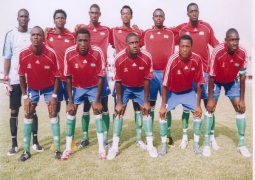It is evident that the governments of ECOWAS member states have made significant efforts to prepare and implement responses to the emerging food crises and soaring food prices, but their relatively weak capacities have tended to limit their ability to achieve lasting and sustainable results through policy interventions.
It is in view of this that the Ministry of Agriculture, in consultation with Food and Agriculture Organisation (FAO) of the United Nations held a two-day validation forum on the countries situation review programme, regarding soaring food prices at the Paradise Suite Hotel over the weekend.
Speaking at the forum, Dr. Thomas Palmar, FAO Consultant stated that a careful study of the situation has shown that a number of actions would need to be taken at the sub- regional level to complement and strengthen the efforts of governments at national level, especially in respect of the medium and long-term actions necessary to attain increased agricultural production, productivity, competitiveness and trade.
"In light of these considerations, FAO initiated support through approved TCP project in each of the 15 ECOWAS countries in support of their efforts to address short and medium terms needs of vulnerable population and to assess the nature and scope of support that could be provided at the sub-regional level to mitigate the negative effects of soaring food prices," he added.
According to Dr. Palmar, global food prices in
"The country situation review provides an appraisal of the current situation, particularly the status requirements, gaps and constraints in respect of the major elements that influence output, yields and competitiveness in the staple food production, in addition to those that also influence availability, access to and use of essential production inputs in the country," he added.
He further pointed out that the review would provide relevant information on some of the elements, such as input delivery systems for seeds planting materials, agricultural chemicals, equipment, etc. Dr. Palmar also noted that actions are ongoing regarding the countries Poverty Reduction Strategy, CAADP and National Agriculture Policy, as well as strengthening the country's capacities to withstand food production and market systems shocks that would have serious implications for food security in the country and the sub-region.
Based on these findings, Dr Palmar added, the report from each country is to identify the major constraints or inadequacies in each of the elements stated above and indicate the interventions considered necessary or being undertaken by governments to address them. According to him, the expectations of the forum were to agree on the main findings of the study on increased food availability, increase physical and economic access and improve utilisation and key policy measures and investment considerations.


